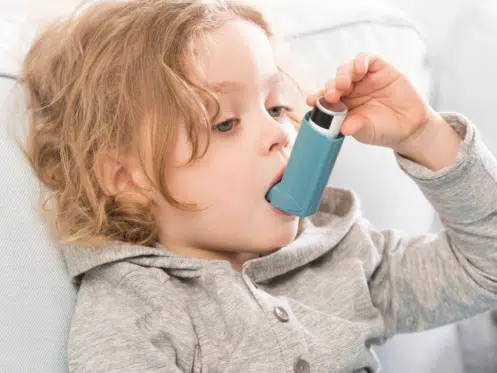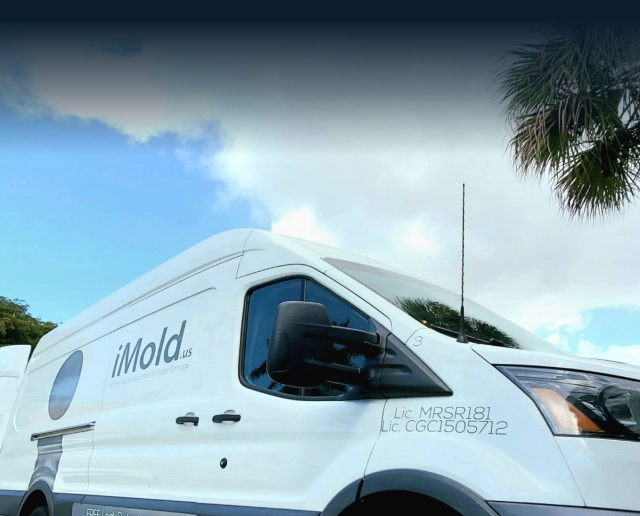Mold and Asthma: What You Need to Know
It’s a fact that over half of all buildings in the country have mold present. While some may think that mold is simply an unsightly feature that comes and goes, the reality is that mold can be dangerous. In addition, millions of people around the US suffer from asthma, with even more allergic to mold. Of course, you don’t have to have asthma to experience asthma-like symptoms caused by mold, but mold and asthma can be a disastrous mix.
How Mold Affects Those with (and Without) Asthma
Almost all health organizations, from the CDC to the American Lung Association, recognize the impacts of mold on your health. Its symptoms range from allergy-like to neurological, with mold and asthma being one of the most common. Many people are allergic to mold itself, while others aren’t but still experience similar symptoms. The issue is that many symptoms of mold are similar to allergies, a cold, or other common health afflictions. That means that narrowing the issue down to mold can be difficult if the mold is growing in a hidden location.
Mold most affects those with pre-existing conditions, like asthma or a weakened immune system. It can both worsen asthma symptoms and cause other non-related issues as well. Mold can even make those without asthma start to develop it. Touching or breathing in mold spores can trigger these responses, and long-term exposure can lead to chronic cough, shortness of breath, and even lung infections. Mold exposure varies from person to person, with some not experiencing any health effects while others are severely affected. Those with asthma should take note if they’re experiencing asthma attacks more often without their usual triggers.
How to Limit Mold Exposure
Unfortunately, it’s impossible to avoid all mold exposure. Spores exist all around us, indoors and outside. The problem comes when the concentration of spores is higher than it should be, like in a mold-infested home or office building. Thinking you have a mold problem in your living area, you should take steps to limit your exposure.
Get an Inspection
Did you know that mold could be lurking in areas that you can’t even see? Many mold infestations occur behind walls or other areas you don’t see every day. The culprit could be an undiscovered water leak or high humidity levels. Being in an undisturbed, dark, and damp area is ideal for mold, so it can spread without issue until it’s too late. However, mold inspectors can detect mold anywhere – even in those impossible-to-reach areas – by using moisture meters and other cutting-edge technology.
Don’t Do It Yourself!
If you’re already noticing asthma symptoms and you confirm the presence of mold, don’t be tempted to clean it up yourself. Cleaners and DIY methods might appear to remove surface mold initially, but they simply aren’t strong enough to kill it at its source. Moreover, you could unintentionally spread those microscopic spores, which only leads to mold in even more areas. As you attempt to remove the mold, you’ll constantly be breathing in high levels of spores, which are extremely harmful to your health.
Hire Licensed Mold Removal Experts
The best choice you can make to prevent mold and asthma from becoming an issue is to hire licensed mold removal professionals. They’ll know what to look for, how to remove it, and how to prevent it from spreading to other areas of your home. A mold expert will have the correct tools and equipment to take care of the problem while keeping you and your family safe and mold-free. Since a mold infestation can be a bigger problem than you might think, it’s best to leave it to experts who are equipped for any situation.
Keep Humidity Low
If you want to keep mold from returning, you can take steps to reduce humidity levels throughout your home. Check your HVAC system for a dehumidifier. Some may have one equipped, but if not, you should consider purchasing dehumidifiers to place around the house. During the evening or cooler days, it’s never a bad idea to open a few windows and doors to air out your house. Always ensure that bathrooms have proper ventilation to prevent moisture build-up.
Mold Removal in Southwest Florida
The licensed and trained experts at iMold are here to solve all your mold problems in Southwest Florida! We’ve seen the effects of mold and asthma on families in the area, and it’s our job to help. Our cutting-edge technology and training come together to remove mold from anywhere around your home, leaving you with cleaner air and less chance of asthma. If you’d like a free inspection, contact us today! We offer emergency response to take care of your mold quickly and permanently. On top of handling mold, we are also the local team you can count on when it comes to water damage, remediation repairs, and cleaning services.
For more information on mold and your health, be sure to follow iMold on Instagram and Facebook.

